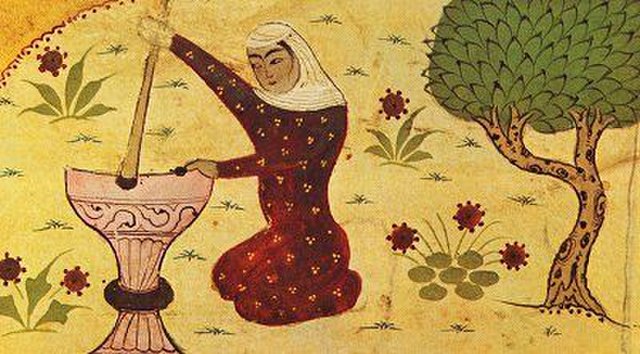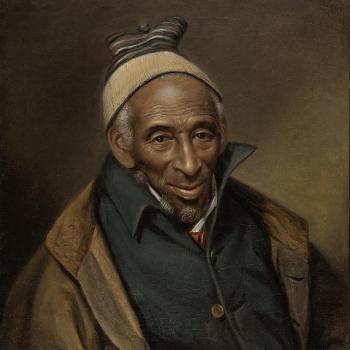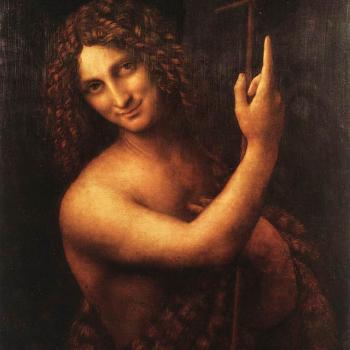Rābiʿah al-ʿAdawīyah (713/17–801), also called Rabi’a of Basra or Rabi’a Basri, was a woman, poet, and mystic who made significant contributions to Islam.
According to traditional stories, Rabi’a was born into a poor family of Basra, in what is now Iraq, then sold into slavery when her parents died. Her practices of piety and prayer impressed her master, who freed her. She spent much of the rest of her life in the desert outside Basra, living independently, writing her poems, and worshiping God
We have little in the way of verifiable historical facts about the life of Rabi’a of Basra, but we know something about the effects of her life. In particular she influenced the development of Sufism, a significant movement within Islamic history.
What Is Sufism?
You may know of the two major branches of Islam, the Shi’a and the Sunni. Sufism is not a separate branch but a movement found within both branches, although the majority of Sufis today are Sunni. Sufism might be explained as a way to practice Islam that emphasizes introspection and closeness to God.
Tradition says that Sufism can be traced to Ali ibn Abi Talib (598 – 661), a nephew and son-in-law of the Prophet Muhammad (570 – 632). It’s possible that Sufism began as a form of Islamic asceticism. Very broadly, religious asceticism is about achieving spiritual purity by rejecting worldly things, including material and sensual pleasures. But beginning about the 8th century — the lifetime of Rabi’a of Basra — Sufism also turned toward mysticism. Sufism today is often explained as mystical Islam.
Okay, So What Is Mysticism?
Mysticism is a word that covers a huge variety of practices and experiences. It is sometimes used derisively to mean “superstitious nonsense,” but it isn’t necessarily superstitious. The best short definition I have found is at the Online Etymology Dictionary, “any mode of thought or life in which reliance is placed upon a spiritual illumination believed to transcend ordinary powers of understanding.” If you want more details, check out the Stanford Encyclopedia of Philosophy. Mysticism in the Abrahamic religions, which includes Islam, often is about engaging in practices to enable a direct experience of God.
Rabi’a of Basra’s Mysticism
Rabi’s is said to have fasted, prayed, performed prostrations, and kept all-night vigils. But her central mystical practice was go focus all her being on love of God. And this love was love for its own sake, without thought of reward. She considered both fear of damnation and hope for eternity in paradise to be impediments. In one of her poems, Rabi’a wrote that she carried a torch in one hand and a bucket of water in the other. With these, she would set fire to heaven and put out the fires of hell, “So that voyagers to God can rip the veils / And see the real goal.”
In her book Women of Sufism: A Hidden Treasure (Shambhala, 2003), Camille Adams Helminski wrote that Rabi’a of Basra was the first person who “clearly expressed the relationship with the Divine in the language we have come to recognize as particularly Sufic, by referring to God as the Beloved.” Her words expressed a deep intimacy with God.
Kings have locked their doors
and each lover is alone with his love.Here, I am alone with you.
[From “O my Lord, the stars glitter,” English version by Charles Upton.]
Rabi’a of Basra’s Legacy
Women in patriarchal cultures generally are only recorded in history through association with famous men. There are many stories of interactions between Rabi’a and a renowned Islamic scholar named Hasan al-Basri (642 – 728). It’s possible they met, although Rabi’a would still have been an adolescent when Hasan died. So the stories are probably just stories. Much of what we know about Rabi’a today comes from the writings of Attar of Nishapur (ca. 1145 – 1221), a Sufi poet and scholar of Persia. It’s assumed that Attar was less of a historian than a hagiographer.
Still, Rabi’a’s life seems to have made a genuine impression on Sufism. She helped shape it into what it became today, a tradition associated with peace and tolerance. She certainly influenced Sufi’s rich tradition of poetry, which includes the popular work of Jalal al-Din Muhammad Rumi (1207 – 1273) , better known in the West as Rumi. And she set a standard that Sufism is not about asceticism alone. It is also about love.














